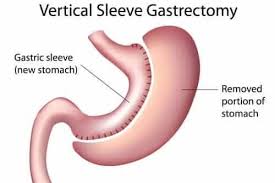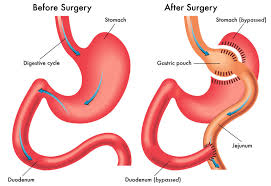The process….
I’m scheduled for surgery July 24th, 2020 but the process to get to a surgery date has it’s challenges. I plan to walk you through the process as it pertained to me since I am not sure how every office/surgeon/ handles these steps. My hope is to give you a better understanding of the general steps and checklists needed to get the go ahead for a surgery date. So here we go…
The initial appointment:
I went in for my consultation with the surgeon on Feb. 19th of this year. He asked me several questions about my past medical history and challenges/attempts at weight loss in the past. Just like any doctor visit, they got my height and weight, BP, temp, etc. before I went into the room with him. The cool thing is my doctor’s office has a special scale that measures your BMI (body mass index), Body fat mass, skeletal muscle mass, and percentage of body fat. It also calculates your Basal Metabolic rate. There is an app to download that syncs the information from the scale to your phone. This information helps the doctor understand your body a little bit better too. After all the initial formalities, he expressed that gastric bypass surgery would be a good option for me. He explained the 2 options of surgery they have available, the sleeve and the bypass, in simple terms. Here’s some pictures of the two procedures to show the difference.


He told me that from the data out there that the bypass surgery seemed to have better long term weight loss success, but had its downsides. For example, due to the stomach not being ‘a part of’ the digestive system, I will never be able to eat certain foods or take ibuprofen products. Apparently, when you eat fatty foods after surgery you will do something called ‘dumping’ where everything comes out in every direction. That’s a good motivation not to eat poorly! He said that the road to get to the surgery could take a while and I didn’t need to decide on the which one until we scheduled surgery.
The Dietician:
The office set up my first appointment required on the checklist with their in house dietician for March 11th. This was an in-person appointment that felt like going to a therapist for food addiction. She asked about my eating habits and my relationship with food. My response was ” I am a skinny girl in a fat body!” which basically sums it all up. She went over several things that she felt I would need to change once I had the surgery and for the most part, I already do them. I know you want some examples. Well, no straws was one that surprised me. She said something about too much air in the stomach… I don’t know. I don’t really use straws anyway, they’re bad for the environment and I don’t like the paper ones. No alcohol was another big one. I drink very little as I have gotten older. It’s too easy to use alcohol as a crutch and I don’t want to become my mom. So if I have a drink, it’s just a rare social situation. No sodas. I very rarely drink anything carbonated or sugary. Then there are the ones that will be harder like rich desserts, high-fat foods, and anything that won’t process in the digestive track easily. She explained the pre-op and post-op diets and what things I needed to start getting used to. Then set up a second appointment. You need to see the dietician at least 2-3 times before getting checked off. Oh, and by the way these appointments are not covered by insurance and are about $50 a visit. My second appointment ended up in the middle of the pandemic and was a phone visit. This was pretty simple and quick. She sent me the diets again for pre- and post-operation and went over the vitamins and protein shakes I would need to purchase before then. Of course, they have a preferred provider for the vitamins….
The Psychologist:
The doctor’s office had a psychologist they recommended but they didn’t use my insurance company. What’s interesting is if my insurance did take them, I would have paid a co-pay plus a $180 for them to put together an approval package for the insurance/doctor’s checklist. I was shitting bricks. What ended up happening is a searched my insurance for psychologists covered by my plan, then crossed checked them with whether they took food addiction issues. I found one that fit the bill and set up an appointment. Set up a zoom appointment with the therapist. It was about 30 minutes long. I paid a $30 co-pay and talked about my surgery requirements and my relationship with food and a bit about my personal life and obligations. Of course, she suggested that I look into therapy after the surgery as an outlet to express myself since food couldn’t be my comfort any longer. I get it, but I think I will write instead. Just for you and ok me too. Afterwards, she wrote up a letter on letterhead and emailed it to me. I printed it and took it to the doctor’s office. Yeah! No $180 extra charge!
The Cardiologist:
This one was an easy one since I had just run through all those test last year. I set up and phone appointment (during pandemic) and explained that I had decided on the surgery and needed her blessing. She was excited for me and sent over the approval right away! But if you hadn’t done all that, you would have to go through stress tests etc to get approved.
Procedures:
There were two procedures that I needed to be done before getting the green light. An endoscopy and a colonoscopy. My surgeon did the endoscopy pretty quickly after my initial visit. It was at the hospital and right at the beginning stages of the pandemic excitement. So there were no major precautions in place yet. That was pretty painless and easy. The colonoscopy on the other hand was a bit more of an issue. First, I had already needed one due to my age, but again I had some issues with the referral. By the time I was able to get the appointment (for a consultation) with the doctor it was during the shutdown and no procedures were getting done. I had to wait for a few weeks to schedule it out a few more weeks. If you haven’t had one done, the prep the day/night before is not pleasant. The procedure was at an endoscopy clinic and we were in full mask/social distancing/limited patients mode. That was interesting to say the least. Done and all clear with no issues. Check!
The Final Pre-op Visit:
The final step was to make a pre-op visit to schedule the surgery and make sure everything was completed. They also went ahead and set up a final phone visit with the dietician for while I was in the office. I met with the surgeon and told him that I had decided on the RnY bypass surgery. He asked if I had any questions etc. then off he went. The scheduler came in next. She scheduled the surgery and post-op appointments with the doctor and again with the dietician. They informed me that my insurance was covering the surgery and hospital visit and that I would have to take a COVID test a couple of days prior. She went over the process the day of surgery and explained that I would be in the hospital for about 3 days (no visitors, thanks COVID). They got the dietician on the phone and she went over the pre-op and post-op diets again!
Currently, I am on the pre-op diet for the 2 weeks before surgery. In my next post, I will talk about what that has been like and start talking about my feelings around the pending surgery. I hope this was informative even though I know it was a bit long. Please leave comments on the post and subscribe if you want to get my posts in your inbox. I will not be sending you a bunch of junk, I promise! Thanks for listening!
